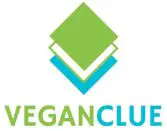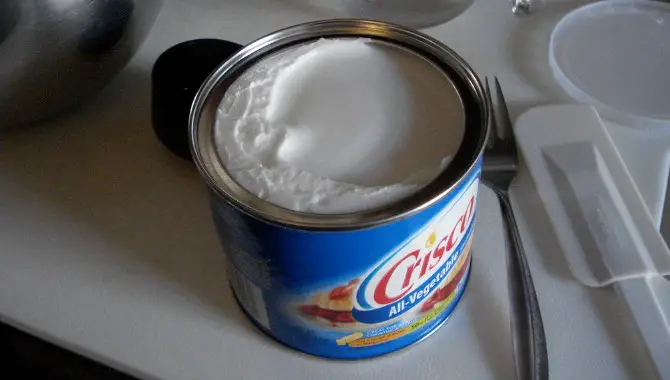Often, when people switch to a vegan lifestyle, they find it surprisingly easy to replace foods like meat, eggs, milk and cheese within their diet. Yet, an area where people can run into some difficulties is the need to replace products like butter and lard, whether it is being used as an actual food ingredient, or as an oil for frying. One of the main alternatives is Crisco, which is an “all-vegetable” shortening, primarily made from vegetable oils, but it is not immediately clear whether or not it is suitable for vegans, especially given a butter flavoured version is available.
So is Crisco vegan? The quick answer is ‘yes’. The product is primarily made from soybean oil and palm oil (!) and functions as an ideal replacement for butter, margarine and lard in a number of vegan recipes. Surprisingly, even the butter flavoured Crisco is perfectly suitable for vegans to eat.
In this article, I will cover the ingredients in Crisco in greater detail and explain why it is perfectly acceptable for most vegans. Some vegans do take their moral stance further, avoiding products that contribute to animal cruelty or wildlife destruction at any point in the production process. With this in mind, I will explain a potential grey area linked to the use of palm oil in Crisco. It is also worth noting that Crisco is not the only option to replace butter or lard, and there are healthier alternatives available, so I will go into some of these too.
What is Crisco and is it Vegan?
Crisco is a vegetable shortening, which can be used as a replacement for butter, margarine and lard. Although it is not intended to be used as a spread, it replaces the aforementioned products for applications like frying and baking. Of course, this naturally raises questions about whether or not it is suitable for vegans, as butter usually contains cow’s milk, while margarine may contain milk-derived products, such as whey, lactose and/or casein.
The good news is, Crisco shortening is made entirely from vegetable oils, meaning it is perfectly compatible with a vegan diet. No animal fats are used at all, with the primary ingredients being soybean oil and palm oil. Even the brand’s butter-flavoured Crisco does not actually contain butter or any animal products whatsoever. It is classed as Kosher Pareve, which means no meat or dairy is used, and Crisco is also notable for being gluten-free too.
When looking at the Crisco ingredients list, the only potentially problematic ingredients are mono and diglycerides, which function as emulsifiers. The reason they can be a red flag for vegans is because mono and diglycerides can be sourced from either vegetables or animals, and it can often be difficult to identify the source. For some vegans, this becomes an issue of practicality and it is regarded as an acceptable risk, but others will avoid these ingredients unless they know they are sourced from vegetables. Thankfully, with Crisco, the manufacturers have clarified that the ingredients are sourced from vegetables and are 100 percent safe for all vegans to eat.
It is worth noting that palm oil is vegan, in the sense that it is not an animal product, but the palm oil industry has come under justified increased scrutiny in recent times, due to poor practices that cause harm to wildlife. Depending on your individual views on why to become vegan, it is possible you may want to avoid palm oil. Many vegans try to only use ingredients that are ethically sourced, where the chances of contributing to animal harm are as low as possible.
One final thing to note is that some vegans take a stance against companies that participate in the practice of testing products on animals, whether directly or indirectly. With regards to Crisco, the product was initially introduced by Procter & Gamble in 1911. Despite making improvements in recent years, Procter & Gamble continue to participate in animal testing in some markets, and this has led some vegans to boycott the brand in favour of cruelty-free alternatives. It is possible you may have read, therefore, that it is best to avoid Crisco.
In actual fact, Crisco is no longer owned by Procter & Gamble, as they sold the brand to The J.M. Smucker Company in 2002. Although the J.M. Smucker Company does utilise eggs and dairy in some of its products, they are not used in Crisco and the J.M. Smucker Company clearly states on its website that it does not conduct animal testing, or use third-parties to conduct animal testing on its behalf. Therefore, purchasing Crisco will not contribute to this cruel practice.
How Healthy is Crisco?
Now that we have established that Crisco is vegan-friendly, you may be wondering whether it is actually healthy. After all, one of the key reasons why people adopt a vegan diet is to improve their well-being and eliminate some of the foods that can contribute to health problems. The bad news here is that Crisco is not good for you at all.
In short, Crisco is extremely high in calories and those calories have very little nutritional value. It has close to no vitamins and minerals and provides no protein or carbohydrates.
The packaging for Crisco makes some health-related claims, such as the claim that it contains 50 percent less saturated fat than butter. While this claim is true, it can also be viewed as an example of ‘health washing‘, which is the practice of making a food product appear healthier than it actually is, by promoting its good points and neglecting to mention the significant drawbacks or downsides. For example, the total fat content of Crisco, per serving, is actually slightly higher than most butter, but this is not mentioned on the label.
In some countries, Crisco also makes the claim that it contains zero percent trans fat per serving. This claim is not true. Modern Crisco products do contain less than one percent trans fat per serving, but the number is not zero. However, many food standards agencies allow food companies to claim zero percent if the true figure is below 0.5 percent.
Away from the issue of trans fat, the use of fully hydrogenated oil within Crisco has been linked with a range of health issues, including increases to blood sugar levels, and elevated risk of diabetes and heart disease.
It should also be noted that the use of soybean oil means Crisco is not suitable for anyone with a soy allergy.
What Are Some Vegan Alternatives?
At this point, you are likely interested in the possible alternatives to butter, margarine and lard, which are vegan, but which are also healthier than Crisco. Fortunately, there are a number of options available to you, although the best alternative will largely depend on what you are intending to use it for.
If you are intending to use the alternative for frying or a similar application, coconut oil represents an excellent option. There are a number of coconut oil-based shortening products on the market and these can usually replace Crisco directly, at a 1:1 ratio, when used for cooking purposes. However, it is worth noting that coconut oil is not always an ideal direct replacement as an actual food ingredient, because it can add a noticeable coconut flavour.
A number of other oils can also be used in place of Crisco for activities like frying, with olive oil and sunflower oil being two of the best examples. However, it is important to note that these oils take a liquid form at room temperature and so will not function as a like for like replacement for Crisco in its solid form.
Finally, vegan-friendly margarine or vegan butter can be used for frying and can also replace the use of Crisco in its solid form within a number of food recipes too. Of course, there may be texture differences, so you may need to experiment with the precise measurements. When replacing Crisco within a food recipe, it is best to try to find a vegan margarine or vegan butter that has a relatively low water content. Vegan-friendly margarine has one other advantage, which is its use as a spread for sandwiches, toast, crumpets, bagels, crackers and various other vegan food types.
Why Should I Become a Vegan?
For most people, adopting a vegan lifestyle will take some adjustment time and require sacrifices to be made, certainly in terms of pure convenience, but also because you may need to give up some of your favourite foods, or make changes to their recipes. For this reason, some extra motivation on why to become vegan can be useful.
Many vegans decide to give up animal products due to cruelty within the meat, dairy and egg industries. While there has been a supposed move towards more ethical meat production by some, the reality is there is no cruelty-free way to slaughter animals. With eggs, even free range egg farms are often guilty of keeping hens in awful conditions, while the fate of male chicks is often an early death, due to their inability to lay eggs. In the dairy industry, cows are selectively bred, fed unnatural diets and subjected to continual pregnancy, in order to maximise milk production.
Aside from this cruelty aspect, there are also strong environmental arguments for veganism. Both the meat and dairy industries have enormous carbon footprints, and are key contributors to problems like deforestation, water pollution and air pollution. Antibiotic use in livestock is also a major cause of antibiotic resistance. A recent study published in the journal ‘Science’ found that avoiding meat and dairy is the single biggest way to reduce your environmental impact.
Lastly, adopting a vegan diet can potentially lead to health benefits too. A number of studies have associated veganism with reduced blood pressure, lower rates of type-2 diabetes and a lower risk of heart disease. With that being said, it is possible to eat good and bad vegan diets. Nevertheless, while vegan diets are not automatically more healthy, many people who turn to veganism find they become more educated about nutrition and make more sensible decisions.
Welcome to VeganClue - My name is Robert Van De Ville and together with my team we spent hundreds of hours researching the most relevant topics for Vegans and non yet Vegans. Are you looking for more information about Veganism, animal welfare, diet, health, and environmental benefits of the Vegan lifestyle? You are in the right place! Enjoy the site.

